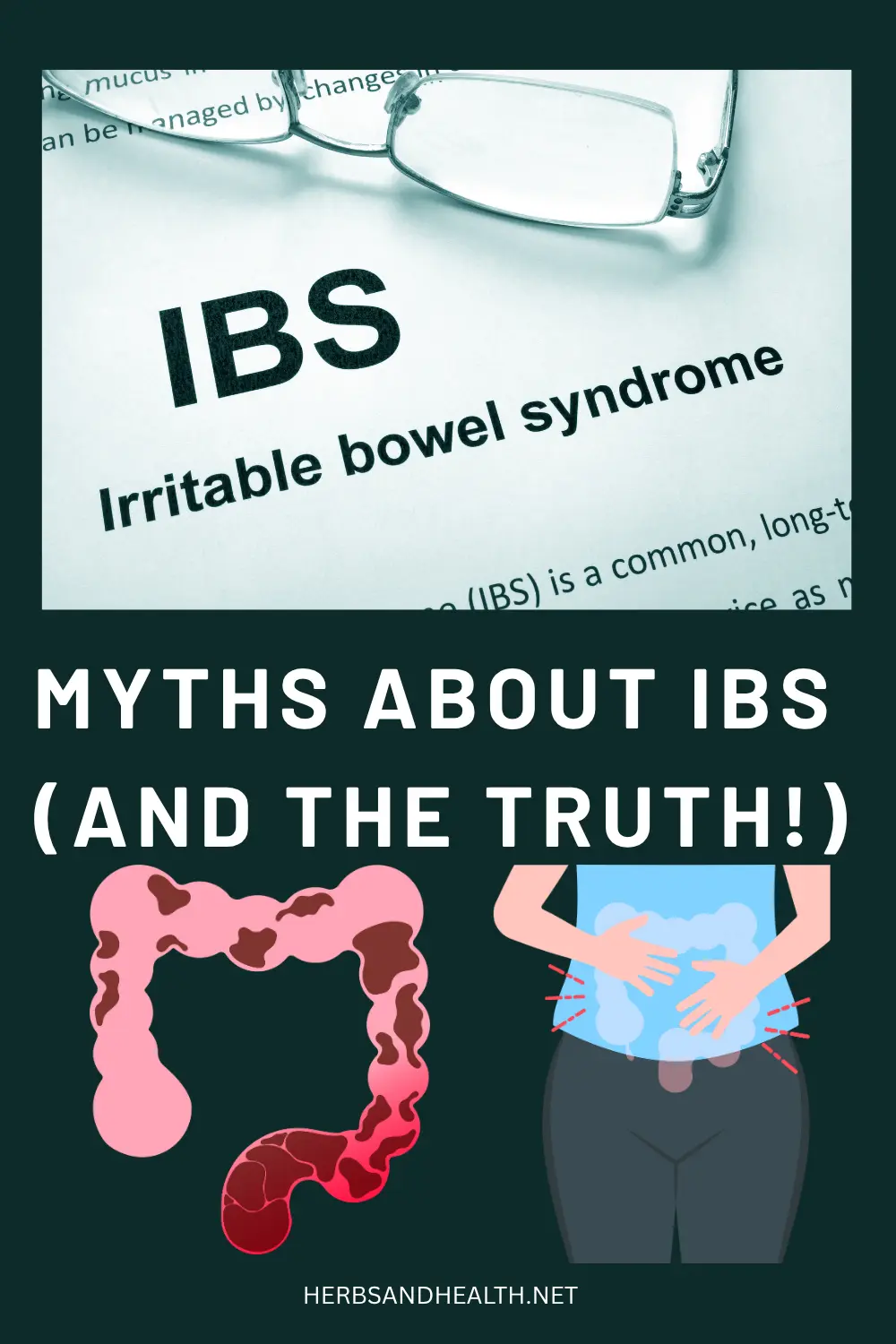Irritable Bowel Syndrome (IBS) is a common digestive condition that affects how the large intestine functions. While it does not cause permanent damage to the digestive tract, it can lead to recurring and uncomfortable symptoms that impact daily life.
Common symptoms of IBS include:
- Bloating
- Gas
- Abdominal pain or cramping
- Diarrhea, constipation, or alternating between both
IBS is considered a functional digestive disorder, meaning symptoms occur without visible structural damage. It is a long‑term condition, but many people are able to manage symptoms with lifestyle and dietary adjustments.
🌿 How Common Is IBS?
IBS affects an estimated 10–15% of people worldwide, making it one of the most common gastrointestinal conditions. Symptoms and severity vary widely from person to person.
❌ Common Myths About IBS (And the Facts)
❌ “IBS is all in your head”
Fact: IBS is a real and diagnosable condition involving the gut–brain connection. Stress can influence symptoms, but IBS is not imaginary.
❌ “IBS causes permanent intestinal damage”
Fact: IBS does not damage the intestines or increase the risk of colon cancer.
❌ “Everyone with IBS has the same symptoms”
Fact: IBS presents in different forms and varies greatly between individuals.
❌ “You must follow a strict diet forever”
Fact: Dietary triggers are personal. Many people benefit from identifying and managing specific triggers rather than following rigid rules.
❌ “IBS is caused only by stress”
Fact: Stress may worsen symptoms, but IBS often involves multiple factors, including gut sensitivity, diet, hormones, and past infections.
🔍 What Causes IBS?
The exact cause of IBS is not fully understood, but several contributing factors are commonly associated with the condition:
- Disruptions in the gut–brain communication
- Food sensitivities (such as FODMAPs, gluten, or dairy)
- Hormonal changes, especially in women
- Post‑infectious changes after food poisoning
- Chronic stress or anxiety
🧬 Types of IBS
IBS is commonly categorized into subtypes based on bowel habits:
- IBS‑C: Constipation‑dominant
- IBS‑D: Diarrhea‑dominant
- IBS‑M: Mixed (alternating constipation and diarrhea)
- IBS‑U: Unclassified
Understanding the subtype can help guide symptom management strategies.
🌱 Natural Remedies for IBS (Supportive Approaches)
⚠️ Note: Natural remedies may help manage symptoms, but they do not cure IBS. Always consult a healthcare professional for persistent symptoms.
1️⃣ Low FODMAP Diet
A commonly recommended dietary approach that reduces fermentable carbohydrates known to trigger gas and bloating. Many people benefit from working with a dietitian to identify personal triggers.
High‑FODMAP foods may include:
- Onions and garlic
- Beans and lentils
- Wheat products
- Apples
2️⃣ Peppermint Oil
Peppermint oil may help relax intestinal muscles and reduce spasms. It is commonly used in capsule form for digestive comfort.
3️⃣ Probiotics
Certain probiotic strains may support gut balance. Effects vary, and not all probiotics work the same way for everyone.
4️⃣ Soluble Fiber
Soluble fiber, such as psyllium husk, may help regulate bowel movements. Insoluble fiber may worsen symptoms for some individuals.
5️⃣ Stress Management
Since the gut and nervous system are closely connected, stress reduction may help improve symptoms. Common approaches include:
- Meditation
- Gentle yoga
- Deep breathing exercises
- Cognitive behavioral therapy (CBT)
6️⃣ Herbal Teas
Some people find relief from digestive discomfort with gentle herbal teas, such as:
- Ginger tea
- Chamomile tea
🚩 When to See a Doctor
Seek medical advice if you experience:
- Unexplained weight loss
- Blood in the stool
- Symptoms that wake you at night
- A family history of colon cancer or inflammatory bowel disease
These may indicate conditions other than IBS.
🌿 Final Thoughts
IBS is a complex and highly individual condition. While it can be uncomfortable, it is not dangerous, and many people successfully manage symptoms through dietary awareness, lifestyle changes, and supportive natural approaches.
What works for one person may not work for another, so tracking symptoms and triggers is essential. When in doubt, professional guidance is always the safest choice.
This article has been reviewed and updated for clarity and accuracy. 2026
